- Register
- Log in to Tune-In
- Wishlist (0)
-
Shopping cart
(0)
You have no items in your shopping cart.
About Beatles Radio.com
We are all about the Beatles.

The Beatles have produced hundreds of songs throughout their career as a band, along with an impressive catalog of solo work from each member, and there is no denying how most of their songs have shaped popular music, often being considered timeless classics. But with a number of songs recorded, there will always be a few that feel a bit subpar, a bit rushed, and sometimes slightly out of place on an artist’s otherwise legendary discography. Even a band as monumental as The Beatles had tracks they later considered “filler.” Not every song was regarded as a masterpiece by the band itself, especially by Paul McCartney in particular.
"Hold Me Tight" Was The Beatles' Attempt at Crafting Another Hit Single
By the time the band recorded their second studio album, With the Beatles, they had already established a name for themselves as a musical act to look out for. The album itself contains some of their early standout tracks, including songs like "All My Loving" and "Please Mr. Postman." It was also met with widespread critical praise and strong commercial success, with critics calling it an impressive follow-up album, especially complimenting the album’s more polished production and more mature s details
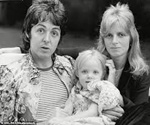
Paul McCartney's daughter Stella McCartney recalled how 'hurt' her late mother was by the bullying she faced from fans.
Linda McCartney was a founding member of her husband's band Wings, which launched in 1971, just a year after he announced he was leaving The Beatles.
McCartney's wife, a photographer by trade, did not always win over critics as she played keyboard and sang harmony in Wings.
In the new documentary Paul McCartney: Man on the Run, her daughter Stella, 54, discussed the impact the criticism had on her mother, who died of cancer in 1998 at age 56.
'She wasn't a cookie-cutter example of someone you put in a band. What they, and she especially, had to go through, like when they isolated her voice and ridiculed her? I mean, it breaks my heart,' the designer said in the documentary.
'I know that there was pain there. I knew she hurt. She wasn't like, cold,' Stella added.
Paul McCartney's, 83, daughter Stella McCartney, 54, recalled how 'hurt' her late mother Linda McCartney was by the bullying she faced from fans and critics; Stella pictured in 2025
Linda, who died of cancer in 1998 at age 56, was a founding member of her husband's band Wings, which launched in 19 details
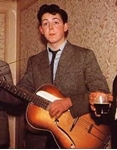
An unassuming Liverpool street went back in time on Monday as director Sam Mendes prepared to shoot scenes for his new anthology of Beatles films outside the childhood home of Sir Paul McCartney.
Mendes is currently working on an ambitious collection of films about the pioneering pop group and their emergence from Liverpool's subterranean Cavern Club to become the biggest and most influential band in the world.
Having already filmed raucous scenes in central London, the director and his team have relocated to Allerton and the modest street outside 20 Forthlin Road, McCartney's home for several years before signing his first record deal with The Beatles in 1962.
Built in 1949, the address was originally bought by McCartney's father Jim in 1955. He would remain their for a decade, until his son – by now a global star – bought him a new house in Heswell, a more prosperous part of the Wirral.
The terraced home, now a National Trust property, was a hive of activity as the street was cut off by traffic cones and diversions were created for oncoming vehicles.
With black tents and vintage cars lining either side of the road, production assistants were seen wheeling period-appropriate details
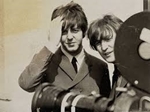
John Lennon delivered some of the most celebrated songs in music history, both during his time with The Beatles and throughout his solo career. Among his most enduring solo works are "Happy Xmas (War Is Over)," "Woman," "Jealous Guy," "(Just Like) Starting Over," "Give Peace a Chance," "Grow Old with Me," "Nobody Told Me," "Watching the Wheels," and arguably his most universally beloved composition, "Imagine." Yet among the many songs Lennon wrote, one held a particularly special place in the heart of Paul McCartney. That song is “Beautiful Boy (Darling Boy),” a deeply personal track from Double Fantasy, his fifth collaborative studio album with Yoko Ono.
John Lennon Wrote "Beautiful Boy (Darling Boy)" as a Tribute to His Son Sean
“I haven’t chosen any Beatles records, but if we had more than eight, I probably would have. I haven’t chosen any of my records so to sum up the whole thing I have chosen one of John Lennon’s from Double Fantasy, which I think is a beautiful song very moving to me. So, I’d like to sum up the whole thing by playing ‘Beautiful Boy.’”
The song reflects Lennon’s desire to protect his child from the world’s uncerta details

The Beatles sang a lot of songs about love and delivered many songs with the word “you” in the title in their early days. But as the 60s progressed, they started to branch out with their lyrics to keep in line with the psychedelic times.
These four songs defy easy description if you just focus on the narrative. But they nonetheless show off the ambition and ingenuity of The Beatles’ songwriters.
“I Am The Walrus”
John Lennon was starting to get fed up with people analyzing his song lyrics looking for deeper meanings between the lines. He decided to purposely send them way off out into the woods with a song that was mostly nonsensical. And yet, what brilliant nonsense “I Am The Walrus” turned out to be. Lennon raised the stakes on Dylanesque stream-of-consciousness writing, adding his love of Lewis Carroll’s wordplay and absurdist humor to a thesaurus-straining choice of words. Throw in a little bit of hippie-ish sentiment: “I am he as you are he as you are me/And we are all together.” Stir it all up and you end up with a surreal masterpiece where the wildness of the music is more than matched by the daring of the words.
“G
details

While Anna Sawai has been busy conquering TV and film, the Emmy-winning “Shōgun” star first got her start in show business as a member of the J-pop band FAKY. Now, Sawai is going back to her musical roots in the role of Yoko Ono in Sam Mendes’ forthcoming “Beatles” biopics.
“It was my dream to tell her story and I didn’t think it would come this quick,” Sawai told Variety at the Los Angeles premiere of Apple TV’s “Monarch: Legacy of Monsters” Season 2 on Thursday night. “There’s a version of her I feel people still don’t understand. And in this film, I think we’re going to be able to tell that side of the story.”
To prepare, Sawai has been busy reading everything she can about the artist and musician. “So much reading, oh my gosh,” she said. “So many books, so many videos, so many articles…She has so much artwork that also shows her personality.”
While on set in London, Sawai teases it’s been fun to hear the cast — Paul Mescal as Paul McCartney, Harris Dickinson as John Lennon, Joseph Quinn as George Harrison and Barry Keoghan as Ringo Starr — play the iconic ba details

It's 1969. The Beatles are trying to record what would become their final albums, and they're at each other's throats. Nothing is working. Then a visitor enters the studio, the keyboard player Billy Preston. On a whim, he sits down to join them for a song, and the mood totally changes.
LENNON: You've given us a lift, Bill. We've been doing this for days.
MARTIN: Did you catch what they said? You're in the group. You've given us a lift. We've been doing this for days. Preston saved those sessions, which is just one reason John Lennon called him the fifth Beatle. But Preston died in 2006. Younger generations barely know who he is. There's a new documentary that hopes to change that. It's called "Billy Preston: That's The Way God Planned It." I spoke with director Paris Barclay.
PARIS BARCLAY: I didn't know about his relationship to Beatles. I didn't know that he played with the Rolling Stones constantly. And as I started to do a little research, I discovered that not only was he a transcendent performer musically, but that his story, including even the tragic things that happened, can be sort of a cautionary tale for how we deal with genius and especially how the Black church deals with people who are diff details

They were awards given to The Beatles at the peak of their fame - but have been out of sight for 60 years.
Now the gongs, including one for their 1966 smash hit Paperback Writer – a number one in both the UK and US charts – are to go under the hammer this coming week. The commemorative discs are described as 'real rarities' and experts predict they'll be a hit with collectors - each selling for over £10,000.
The 7-inch silver disc for Paperback Writer was presented to the band by a weekly music paper in 1966 after the single's huge success.
The catalogue description released by Surrey-based Ewbanks Auctioneers, states: 'The Beatles received this award for the hit single 'Paperback Writer' released on the Parlophone label 10th June 1966, from the (then) prominent British weekly music paper 'Disc' (later Disc and Music Echo)'. Ewbanks said the award came 'at a pivotal point in the band's career, marking the end of live shows and touring and becoming a more experimental studio based creative powerhouse, a time when Brian Epstein's influence was fading, Beatle Boots, suits and head shaking were all in the past'. However, it was 'a time that many consider the peak of th details
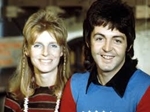
Paul McCartney’s new documentary revisits life after the Beatles and the formation of Wings. McCartney described seeing footage of Linda as “very emotional” and deeply personal. Lost home videos resurfaced, adding a special family touch to the film.
At the screening of his latest film, which explores his life after the Beatles and the formation of Wings, McCartney reflected with Us Weekly, “I think all the stuff with the kids and Linda is lovely to see. I mean, obviously, the Linda stuff was very emotional. She looks so beautiful. She’s so cool.”
He continued, “Me and Linda interacting is very special, because she’s not here. Seeing the kids little, ’cause they know they’re not little anymore … they’ve got kids of their own. Linda, the kids, me and John [Lennon], just these memories … it’s like a life flashing in front of me.”
According to the outlet, several of the photos and home videos featured in the documentary were taken by Linda, adding a special and deeply personal touch to the film. McCartney later admitted he had long believed the footage was gone for good and was stunned when it resurfaced. details

It sounds counterintuitive to suggest that The Beatles, the most celebrated band of all time, has forgotten songs, and even more so to suggest the group has forgotten No. 1 hits. In fact, interest in the Fab Four has remained incredibly high in the decades since the band broke up back in 1970. But as the years have passed, the popularity of individual songs within The Beatles' discography has fluctuated. If we look at the numbers of streaming platforms such as Spotify, we can see at the time of writing that some of the band's iconic singles, such as "Hey Jude" and "Let It Be" — both of which hit the top spot on the Billboard Hot 100 — continue to attract a huge listenership. Yet many of the most popular Beatles songs were not singles at all but album tracks that have aged particularly well, such as "Here Comes the Sun" and "In My Life."
With that in mind, we're revisiting five of the 20 Beatles singles that topped the charts in the United States but whose popularity has waned slightly within the band's discography. Don't get us wrong: These songs still have tens of millions of plays on streaming platforms (it's The Beatles, after all). But the truth is they no longer have a seat at the top table in terms of details

“It was John’s original inspiration, I think my melody, I think my guitar riff. That’s my recollection”: Lennon might have written the lyrics, but as McCartney remembers it, he “wrote the tune” to one of The Beatles’ greatest and most poignant songs.
Anyone looking to pinpoint the moment when The Beatles turned from pop idols into mature artists will inevitably hone in on their landmark sixth studio album Rubber Soul. Recorded over a four-week period, from 12 October to 11 November 1965, Rubber Soul is The Beatles’ first masterpiece, a hugely influential pre-psychedelia work that draws on folk, soul and pop.
Sonically the album signalled a major shift, as the band incorporated soul-style bass lines, fuzz bass effects, harmonium and sitar. But it also marked a transition in John Lennon and Paul McCartney’s songwriting, from pop singles to a more cohesive, mature, album-orientated style.
Much of this was due to the ongoing influence of Bob Dylan, the folk-rock jangle of The Byrds and soul artists on the Motown and Stax labels whose music The Beatles soaked up from radio stations across the US during the summer of 1965.
Then, of course, ther details

Paul McCartney had a famously stoic reaction to John Lennon's death in 1980. Lennon's son Sean Ono Lennon defends McCartney in the new documentary Man on the Run. McCartney's daughter Stella also reveals he did, in fact, have an emotional reaction to Lennon's death.
Just hours after John Lennon’s death, Paul McCartney was bombarded by reporters asking him for a reaction to losing his lifelong friend and bandmate.
The stunned McCartney, 83, famously offered a stoic response, nonchalantly telling the reporters, “[It’s a] drag, isn’t it?” in a clip that has been repeatedly analyzed by fans. Now, in a new documentary following McCartney’s life and career, Lennon’s son Sean Ono Lennon is opening up about why the singer’s reaction actually makes a lot of sense to him.
“I always notice the look in his eyes and the tone of his voice. Really felt like someone who was unable to process what was going on,” Sean says in the documentary Man on the Run (in theaters Thursday, Feb. 19 and Sunday, Feb. 22 only and out on Prime Video Feb. 27). “He just seemed almost robotic, which I think some people took possibly as coldness, but I never t details

Though John Lennon reached the highest levels of musicsuccess with The Beatles, the prolific singer-songwriter only topped the Billboard Hot 100 chart once while he was alive. Lennon’s 1974 song, “Whatever Gets You Thru The Night,” was put together with an assist from another major player in the music game, Elton John, and was inspired by an unexpected television show.
The song made its debut on September 28, 1974 and made it to the top of the chart by November. American Songwriter reports that the song’s title and message came from Lennon’s late-night channel surfing habit.
May Pang, who was his wife Yoko Ono’s personal assistant and who was in a romantic relationship with Lennon (approved by Ono!) at the time he wrote the song, told Radio Times, “One time, he was watching Reverend Ike, a famous Black evangelist, who was saying, ‘Let me tell you guys, it doesn’t matter, it’s whatever gets you through the night.’ John loved it and said, ‘I’ve got to write it down or I’ll forget it.’”
The song eventually made its way onto Lennon’s 1974 album, Walls and Bridges, with a little help from Elton John. Whi details

Paul McCartney met the actor set to portray him in an upcoming four-film project about the Beatles.
McCartney, 83, and Paul Mescal, 30, were amongst the attendees at the London screening of Oscar-winning filmmaker Morgan Neville’s Man on the Run. The Amazon MGM documentary details McCartney’s life after the Beatles disbanded. Mescal attended the premiere with girlfriend Gracie Abrams. The pair posed with McCartney on the red carpet. A photo illustration of The Beatles for the Obsessed podcast.
Mescal will be seen as McCartney in the forthcoming movie series The Beatles — A Four-Film Cinematic Event. The set of four films, each focusing on a Beatles member, will release theatrically in April 2028. In addition to Mescal, the films feature Harris Dickinson as John Lennon, Joseph Quinn as George Harrison, and Barry Keoghan as Ringo Starr.
Each segment of the film anthology will be directed by Oscar-winning director Sam Mendes, known for critically acclaimed projects like American Beauty and Skyfall. Mendes also produced Hamnet, in which Mescal starred as William Shakespeare.
Other key characters will be played by a starry cast: Saoirse Ronan as Linda McCa details

Billy Preston recorded several albums for the Beatles’ Apple Records and added a driving organ to the song “Get Back” (1969), which was credited to “the Beatles with Billy Preston,” the only time the group shared credit with another artist. He also contributed to the albums Abbey Road (1969) and Let It Be (1970), and he was part of the band’s legendary rooftop concert during the making of the documentary film Let It Be (1970).
Source: britannica.com
details
Nearly 60 years after the most devastating breakup in music history, Oscar-winning documentarian Morgan Neville is shedding new light on what kept the Beatles from reuniting.
“Every single interview any of them gave in that entire decade, they were asked, ‘When are the Beatles going to get back together?’” Neville, 58, told Obsessed: The Podcast host Matt Wilstein in a new interview about his latest documentary, Man on the Run. “They could not escape it.”
Despite the band’s refusal to answer those questions at the time, Neville now believes they had something in the works.
“I actually think, if John had lived, they would’ve gotten back together,” the director added. “Eventually, somehow, somewhere.”
Portrait of the The Beatles. From left to right: Ringo Starr, Paul McCartney, John Lennon, and George Harrison, circa 1965.
The Beatles' split in 1970 rocked the music world to its core and left each of the band's members questioning their musical futures. McCartney later reflected that he thought he might "never write another note of music ever."
Neville has spent his 30-year career piecing together the live details

Documentary filmmaker Morgan Neville dove in deep to create “Man on the Run,” a movie about Paul McCartney in the 1970s after the Beatles’ breakup. The film, which is playing at selected theaters locally, arrives on Prime Video on February 27th.
By the time he’d completed the film, the director had far more interview material than he could fit into two hours. McCartney’s company, MPL, decided to use that material as the basis for an oral history book, “Wings: The Story of a Band on the Run.”
Ted Widmer, a historian and former speechwriter in the Clinton White House, was leaving a McCartney concert in 2023 when he ran into a book editor he knew, Bob Weil, and they discussed their love of the Beatles.
Later, Widmer positively reviewed McCartney’s photo book, “1964: Eye of the Storm,” and it turned out that Weil had been the editor of that book and other recent McCartney publications. Widmer learned all this in early 2024 when Weil called and invited him to compile the oral history into a book. “I was excited,” Widmer said in a recent video interview. “We had to work really fast. We had a good team with Bob and a couple details

People all around the world will never stop listening to music from The Beatles. Even more than a half-century after the Fab Four split, the group constantly appears on charts in most Western nations, especially the United Kingdom, where the four members – John Lennon, Paul McCartney, Ringo Starr, and George Harrison – hail from.
Usually multiple albums, and one or two tracks, can be found on the weekly lists, and this time around, two Beatles smashes return and become bestsellers again, with one reaching never-before-seen peaks. The Beatles Bring "Golden Slumbers" Back
"Golden Slumbers" by The Beatles rebounds onto both the Official Singles Downloads and Official Singles Sales charts. The track becomes a top 40 win for the first time on the downloads-only roster as it reenters at No. 37. The same cut narrowly misses out on that important tier on the Official Singles Sales list, where it settles at No. 41. Those are new peaks for "Golden Slumbers" on both charts.
The Beatles debuted "Golden Slumbers" on both the Official Singles Sales and Official Singles Downloads charts back in November 2017. As the song returns, it earns only its second stay on the lists as a true bestseller in details
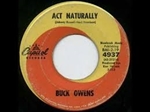
On an unassuming summer’s day in the early 1960s, Johnny Russell found himself in a position that anyone with a puppy-love crush would dread: having to cancel a date with someone you’re sweet on. A last-minute cancellation could offend the canceled-upon, maybe even so much so that the relationship falters, which makes breaking the news a delicate dance. That day, Russell chose comedy.
As explained in Ace Collins’ The Stories Behind Country Music’s All-Time Greatest 100 Songs, Russell was planning on taking a sweetheart out on a date one summer evening when he received a phone call from some friends in Oklahoma. “They were doing a recording session in Los Angeles, and they wanted me to come down and help them. There was no getting out of it. So, I had to break a date with a girl I had been seeing. When she asked me why I was going to L.A., I answered, ‘They are going to put me in the movies and make a big star out of me.’”
“We both laughed,” Russell said. But Russell soon realized that his attempt to smooth things over with his date had more potential than a funny excuse. Pretty soon, Russell had a melody to go with the lyrics, “They’re gonna details

The very mention of The Beatles conjures up images of screaming fans, mop-top haircuts, and songs that became synonyms with the swinging sixties, added a fresh chapter in the annals of rock ‘n’ roll, and etched themselves forever in the hearts and minds of generations; songs about love, peace, social consciousness, loneliness, childhood nostalgia and drug culture that still hit differently. The four working-class boys, who shot to global stardom from the smoky clubs of Merseyside in Liverpool (UK), evoke nostalgia like few other bands’ members do.
For those interested in everything Beatles, there is good news. Sam Mendes, the British filmmaker behind American Beauty (1999), Road to Perdition (2002), Revolutionary Road (2008), and Bond films Skyfall (2012) and Spectre (2015), is set to showcase the band’s journey in a four-film project about The Beatles, with all movies scheduled for a simultaneous theatrical release in April 2028. The films, featuring Harris Dickinson (John Lennon), Paul Mescal (Paul McCartney), Joseph Quinn (George Harrison), and Barry Keoghan (Ringo Starr), will offer distinct perspectives on the band’s history.
The first announcement in this regard was made in ea details

When The Beatles broke up in 1969 (although it wasn’t announced until 1970), the four men made a point of moving forward into solo forays pretty quickly. They also inherently understood that their work on their own would always be compared to what they’d done within the Fab Four, especially when it came to the charts.
Eventually, each man found their way to No. 1 in the US, a spot where they’d perched so often with their former group. Here are the songs that did it for them. “My Sweet Lord” by George Harrison
It makes sense that George Harrison was the first Beatle to reach the top of the US pop charts. After all, he had amassed a large quantity of songs that he’d written for the Fab Four that were either refused by the band or just didn’t quite muscle onto an album. Also, remember that Harrison’s songs stood tallest on Abbey Road, the last album The Beatles recorded. Harrison was able to release a triple album (All Things Must Pass) in 1970 with everything he had in his backlog. The first single, “My Sweet Lord”, immediately topped the charts. Down the road, the song caused Harrison quite a few headaches when a court decided he had unconscio details

Paul McCartney’s new documentary, Man On The Run, gets its television premiere on February 27 on Amazon’s Prime Video streaming service. Now comes word that a companion soundtrack album will be released that same day. Titled Man On The Run – Music From The Motion Picture Soundtrack, the 12-track collection features a selection of recordings McCartney made throughout the 1970s, either as a solo artist; as a duo with his first wife, Linda; or with his post-Beatles band Wings.
The album includes various hits, deep cuts, and rarities, offering a snapshot of McCartney’s creative output during the 1970s. Two tracks have been made available exclusively on Amazon Music in advance of the album’s release. One is a previously unreleased rough mix of “Arrow Through Me,” a reggae-influenced gem from Wings’ 1979 studio album Back To The Egg. The other is a live version of McCartney and Wings’ hit 1973 James Bond theme “Live And Let Die,” from the 1980 concert film Rockshow.
Another previously unreleased track also will appear on the soundtrack album. The song, “Gotta Sing Gotta Dance,” originally was featured in the 1973 The James Paul McCartney TV details

After working with co-producer Phil Spector on his third album, All Things Must Pass, George Harrison started working on the producer’s then-wife, the Ronettes’ Ronnie Spector‘s comeback album, which would be released on the Beatles‘ Apple Records. For her, Harrison contributed two songs he’d recorded during the All Things Must Pass Sessions.
Though Spector’s album was later abandoned due to her husband’s erratic behavior during recording, some of the songs they recorded were later revived by Harrison.
George Harrison originally wrote “Try Some, Buy Some” during the All Things Must Pass sessions in 1970. By April 1971, another version was released as a single by Ronnie Spector. Co-produced by Phil Spector and Harrison, the new version features the former Beatle on guitar and peaked at No. 77.
“The song itself, I think, is really good,” Harrison told Record Mirror in 1972. “It’s so simple yet so complicated. It was the sort of thing I found myself playing over and over again and being amazed by the simplicity of the movement of the bass lines.”
Way back in time
Someone said, try some
I tried some
details
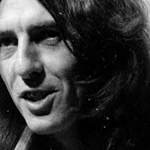
George Harrison was always known as the “quiet” Beatle during his tenure with the Fab Four. He was a bit more mysterious compared to his fellow bandmates, and rarely spoke out of turn during interviews. A talented songwriter and guitarist, both during The Beatles’ run in the 60s and his solo career that followed, Harrison seemed to prefer to express himself through song.
3 Sloppy and Rushed Pop Albums That Ended Up Being Brilliant
Though, despite being reserved, Harrison had an interest in a particularly loud sport. George He wasn’t a fan of a more relaxed sport like tennis or maybe golf. Rather, Harrison was quite a big fan of sports cars and motor racing, particularly F1 racing. And he allegedly said that the vroom-vroom of an F1 car was the only thing that gave him the same rush as performing with The Beatles. And in the mid-to-late 1970s, Harrison leaned heavily into his favorite hobby outside of music.
George Harrison’s Love of F1 Racing
George Harrison had been a lover of racing drivers and motor sports since he was a young boy. He attended his first race when he was just 12 at the 1955 British Grand Prix, located at Aintree Racecourse in Merseyside, England.
details
Paul McCartney is known as one of the most famous musicians in the world thanks to the fame he found with The Beatles but he almost gave it all up when things turned sour for the band
Paul McCartney will tell the story of how his life fell apart after The Beatles split, leading him to almost abandon his music career. Paul, 83, discusses his life as a global superstar in the iconic band and beyond in the new Prime Video documentary, Paul McCartney: Man on the Run. When The Beatles - Paul and bandmates John Lennon, George Harrison, and Ringo Starr - broke up in 1970, Paul was left battling depression.
He then formed a new band, Wings, with his wife, Linda McCartney. In the trailer, he says, "The Beatles had been my whole life, really. When we split up, I thought I'll never write another note of music ever. I had fear of being a grown-up."
He continued, "I felt very depressed, but I was very lucky because I had Linda." He then said of Wings, "If anybody badmouthed us, I was thinking, 'I'm going to make the best record you've ever heard.'... People thought we were totally crazy, but that was our way."
Wings eventually had a string of hits, including Band on the Run, Live and Let Die, Jet a details
